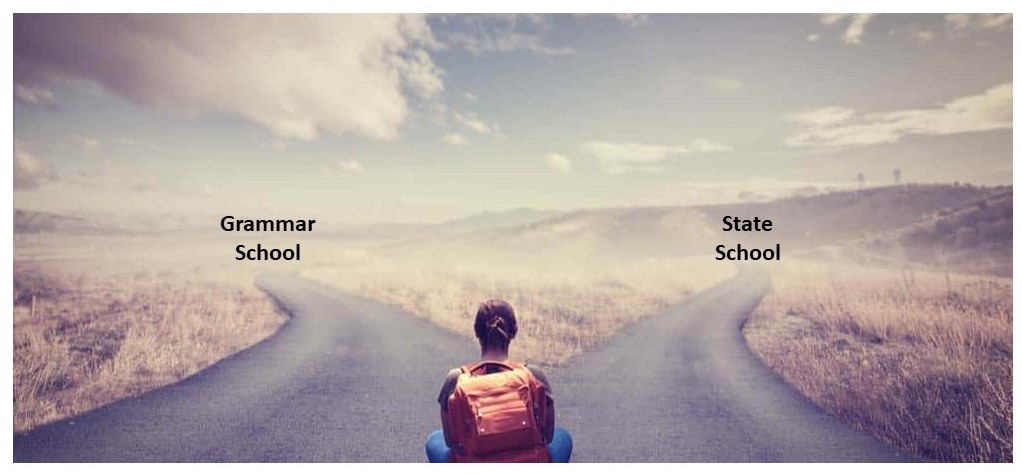
We might all not know what we should talk to our children about, what is really of value to them, but we all were young once and we can surely think about what we would have liked if it was spoken to us. As teachers or as parents, children look up to their close elders not just with admiration, but also as role models. They learn what they see, they become what they have been raised as. Everything that a child learns while he/she is growing up can be and will be a permanent part of their personality. Everything that is spoken to a child becomes deeply ingrained in the subconscious memory and those values last forever.
I still remember so many incidences very vividly and they have become a huge part of how I react to my adult situations. I remember I was a very academically focused student, always scoring good grades, except in Mathematics which I became good at a later stage. When I was in the Year 7, we had our mid-terms which were graded on a scale of 1-20. Usually, a half point was counted as a full point. So, if you score a ten and a half, it would be rounded off as eleven. Our teacher came and gave us our answer sheets after grading them. She announced in the class that no one will get a twenty on twenty because that is her rule, and no one had ever received a 20 either. I saw my paper and she had graded me a nineteen and a half. I re-counted and confirmed and it was totaling to a nineteen and a half which was an A+ for sure. I was in dilemma whether to tell her the truth or leave it be. Had I not told her, I would score a perfect twenty and be the highest scorer in the entire class. So courageously, I decided to be honest and I went up to her and told her that she had graded me a nineteen and a half which is against her rule so please go ahead and deduct the half point. I know it sounds very lame, but as a child it matters a lot, it’s a matter of values and conscience. She deducted half the point and I was very upset. Being a competitive child it came naturally to me. I knew I deserved a twenty, but I willingly decided to score an A grade and not the A+. When the class finished she called me to her cabin and asked me for the paper again. She wrote a plus one on my paper and made it a complete twenty. She held my hand and told me “This one mark is for your honesty”. That was the first time in my life that I realized that honesty will always pay you abundantly. It’s a virtue that has to stick.
Therefore, I believe that the first thing that you need to speak with your child about is holding on to their virtues and their principles. You do not need to teach them what they should believe in, but rather you should teach them to trust and follow what they believe in. Listen to them and acknowledge that their belief system holds an inherent value. Tell them it will take them places. Do not try to enforce your belief system on them, but rather motivate them to build their own principles, that they will stand on forever.
The second most important thing to talk to your children about are your own practical mistakes. Often parents tend to portray that they are perfect because their children look up to them. This sometimes makes the child so delusional that they end up turning into your replicas, with the half-truth they know about you. My father was a doctor and he was a snobbish one so I got to be snobbish too. My mother was a lawyer and she helped defend some criminals so that might be the ideal thing for me to do too. You see, not always it’s the best thing to let your child see just the good part or the end result. It’s ok to talk about your mistakes, it’s ok to tell them you took a wrong decision so the child knows that it’s ok to make mistakes as long as you learn and grow.
Third and a very important topic again. Do not hesitate to talk to your children about their physical self. Make sure you motivate them and make them realise that how they look does not define them and however they look they are unique and beautiful. It’s very common for children to get body shamed and also because of the increasing use of social media they may develop a sense of insecurity. Body positivity starts at home. Start using meaningful compliments and not use any body shaming compliments for anyone in front of your children either. It is your responsibility as a parent and a teacher to ensure they grow into their confident loving self.
Last but not the least, talk to them about developing a social work-related skill and motivate them by listening to them. Yes, we have spoken about this before and it needs to be reiterated. Kindness and empathy are very important attributes. If the mentality of ‘each one help one’ is inculcated right from a younger age, can you imagine how beautiful the world will turn out to be. Social work is a part of curriculum now a days, community service too but you need to ensure how crucial it is to be empathetic. Talk to them about how important it is to be a conscious citizen and more than that- a human being. Talk to them about how everyone on earth has the equal right to live and thrive and those who are less fortunate can be helped. Humanity and human values above anything else.
I am sure as parents you would know a thousand more things that you want to speak to your child about. Do share your feedback and your ideas and help every child bloom into an amazing human being.

